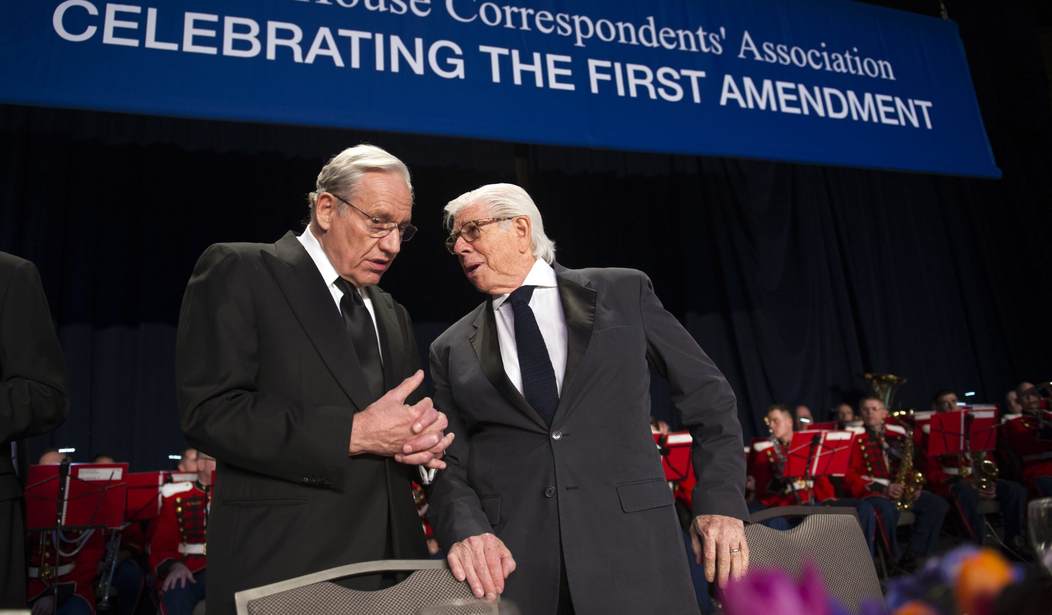Washington Post associate editor Bob Woodward said this morning that staffers are able to whisk papers off the president’s desk — out of fear that some signed documents would create a national security crisis — because Donald Trump doesn’t remember they were there in the first place.
“If it’s not on his desk, if it’s not immediately available for action, it goes away,” Woodward said in his first media appearance talking about his new book, Fear: Trump in the White House, to be released Tuesday.
Woodward asserted on CBS Sunday Morning that “people who work for him are worried — that he will sign things or give orders that threaten the national security or financial security of the country or the world.”
In the eight other presidential administrations Woodward has covered, he said he has “have never heard of people on the staff in the White House engaging in that kind of extreme action.”
Trump, he said, characterized his “little rocket man” tweet war with North Korean dictator Kim Jong-un as “leader versus leader, man versus man, me versus Kim,” and at one point drafted a tweet that said, “We are going to pull our dependents from South Korea — family members of the 28,000 people there.” The tweet reportedly wasn’t sent after North Korea signaled it would be viewed as a precursor to war.
“At that moment there was a sense of profound alarm in the Pentagon leadership that ‘my God, one tweet and we have reliable information that the North Koreans are going to read this as an attack is imminent,'” Woodward said.
Trump has called the forthcoming book “total fiction — just like he wrote in the past about other presidents.”
Woodward called it “not true” that he spoke to people with an ax to grind against the president. He said Trump is “wrong and my reporting is meticulous and careful.”
He said he had “multiple interviews with key witnesses” for each of the book’s claims. “One person I interviewed nine times and transcripts of these conversations are 7 or 800 pages long, goes hundreds of pages,” he added.
Woodward said he interviewed “over a hundred” people for the book, adding, “I would say that maybe half of those are key people.”
But he said he has “no idea” which “senior administration official” wrote last week’s anonymous New York Times op-ed stating that some within the White House are actively working to stop Trump from acting out on certain impulses.
“It’s very important who it is. It’s very important whether this is somebody who witnessed and participated. And, quite frankly, if there was a person in the White House or in the administration who wanted to tell me what’s in that op-ed piece I would say ‘OK, name me who was there. What is the specific incident?'” Woodward continued. “As you know from having read my book there are dates and times and participants — I wouldn’t have used it.”
The reason, he added, was that the op-ed was “too vague and not, does not meet the standards of trying to describe specific incidents. Specific incidents are the building blocks of journalism, as you well know.”
Asked what conclusion people should take away from his book, Woodward replied, “That people better wake up to what’s going on.”









Join the conversation as a VIP Member